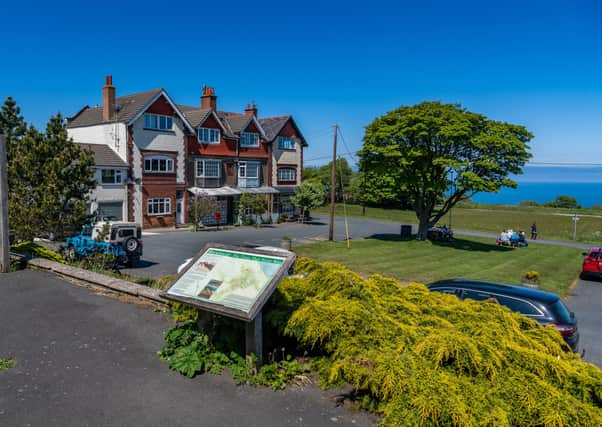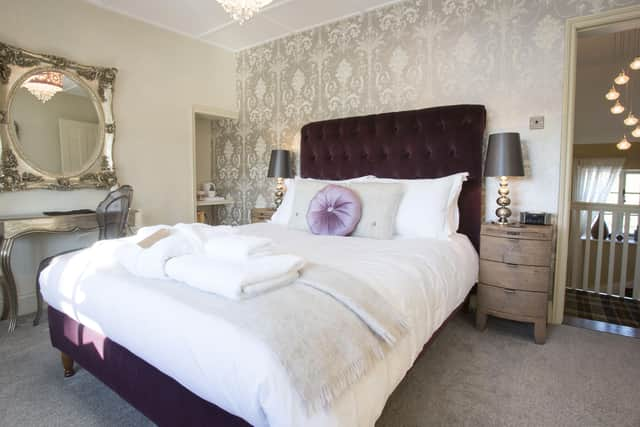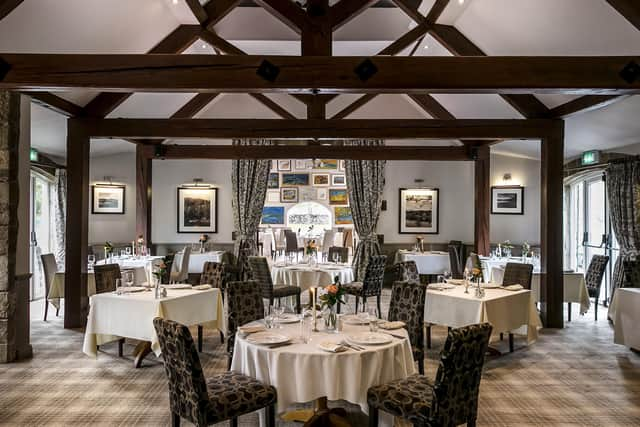Why it pays to book direct when organising a UK holiday: Susan Briggs


Their rapid growth and huge marketing budgets have made them household names. Known collectively as online travel agents (OTAs), accommodation booking sites now account for a major proportion of UK hotel, B&B and self-catering accommodation bookings.
They’re easy to use, offer plenty of choice and help consumers find places to stay that they might otherwise never discover. Claiming to offer the best deals and flexible cancellation fees, they seem to be a good thing.
Advertisement
Hide AdAdvertisement
Hide AdLook a little closer, and you might think differently. Their inexorable rise comes at the expense of many small businesses and could have a negative impact on your wallet.


The launch of the first OTAs was welcomed. Small, lesser-known accommodation providers were happy to pay OTA commissions to reach a broader market. Commission rates have increased, becoming unsustainable for some businesses: the bed and breakfast or cottage you’ve booked for your next holiday could be paying 15 to 30 per cent commission to the OTA. You might think this doesn’t affect the holidaymaker but it does. Someone has to pay those commission rates. Ultimately it will be the consumer.
Commission levels aren’t the only reason for inflated prices. An increasingly common practice known as “dynamic pricing” means that the price of your holiday may be dictated by an algorithm rather than common sense. Online booking software looks at the peaks and flows in demand for accommodation in each area throughout the year and sets prices accordingly.
Their systems are able to forecast when places are likely to be popular, increasing or decreasing rates in line with demand. If it looks like there’ll be few requests for a seaside hotel in November, the OTA will automatically reduce prices. If most accommodation is likely to be fully booked next month, dynamic pricing models will increase prices. Sometimes this will work in your favour. Sometimes it won’t.
Advertisement
Hide AdAdvertisement
Hide AdYou may have read of record charges for holiday cottages this summer. It’s rarely due to greedy owners. I work with hundreds of accommodation providers and can’t think of a single one who has significantly inflated their prices this year, despite the incredible demand. Most take a longer-term view to attract happy guests and return visitors.


The online agencies are more focused on immediate profit and it looks like this summer will be a bumper season for them. One cottage owner told me that their cottage booking agency had upped the price for a weekend this month to £815, thanks to its dynamic pricing model. The owner would be content to charge £595.
As the OTAs have become increasingly powerful, many accommodation providers feel they’re being held to ransom by what is almost a monopoly situation. It’s reducing the livelihoods of accommodation providers, and impacting on consumers. High commission levels mean less money to invest in upgrades and improvements that could benefit guests. Hotels allocate their least attractive rooms to OTAs, saving the best ones for the people who book directly because they earn more from those guests.
You might have noticed that even when you search for named accommodation online, popular booking sites appear first in the listings. This is due to what’s known as “brandjacking” or brand hi-jacking, a major problem for accommodation owners. OTAs use accommodation’s name in sponsored ads to attract traffic to their booking websites, luring visitors away from the accommodation’s own website.
Advertisement
Hide AdAdvertisement
Hide AdThe only way hotels and cottage owners can compete to make their own business more prominent than the OTA is to pay large sums of money to advertise on Google. Once again, those costs will eventually be passed on to the consumer.
Online booking sites offer a useful search service. My advice is to call the accommodation and book direct. You’ll almost always get better rooms, better prices and better service. Don’t panic if you’ve not yet booked your UK holiday (it’s not a staycation…). There’s still plenty of accommodation in some beautiful areas of the country, including Yorkshire.
There’s space in serviced accommodation, particularly in city centres where you can get some fantastic deals at the moment. If you’re looking for self-catering, try to go a little off the beaten track and look for independent businesses, not always listed on OTA sites. Wherever you want to stay, book direct to benefit yourself and the accommodation business.
Susan Briggs is director of the Tourism Network. She lives in Masham.
Advertisement
Hide AdAdvertisement
Hide AdSupport The Yorkshire Post and become a subscriber today. Your subscription will help us to continue to bring quality news to the people of Yorkshire. In return, you’ll see fewer ads on site, get free access to our app and receive exclusive members-only offers. Click here to subscribe.
Comment Guidelines
National World encourages reader discussion on our stories. User feedback, insights and back-and-forth exchanges add a rich layer of context to reporting. Please review our Community Guidelines before commenting.